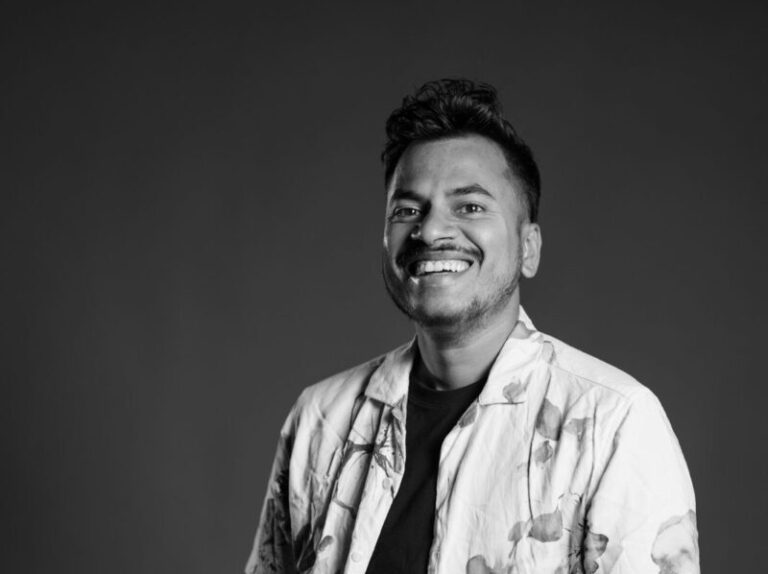Punit Jajodia is a tech entrepreneur and educator, best known as the co‑founder and CEO of Programiz, a platform dedicated to transforming how beginners learn programming through interactive courses and gamified experiences. Over the past decade, he’s led Programiz from a humble blog to a full-fledged educational platform that reaches millions of learners globally. An expert in web app development and technical writing himself, he has also led other entrepreneurial tech ventures into impactful businesses with his keen understanding of scaling and building company culture.
Company: Programiz
We are thrilled to have you join us today, welcome to ValiantCEO Magazine’s exclusive interview! Let’s start off with a little introduction. Tell our readers a bit about yourself and your company.
Punit Jajodia: Hi, I’m Punit. As the co-founder and CEO of Programiz, I took what began as a simple programming tutorials blog and scaled it into a global engine for coding education that serves millions of learners every month. I have a B.Tech in Computer Science and an MBA in Entrepreneurship.
Unlike passive platforms, Programiz PRO centers learning to code around building. Every lesson leads to functional code, portfolio-ready projects, and skills that map directly to what employers want. The free platform programiz.com still caters to millions of people who visit the website to learn the syntax for popular programming languages like Python, Java, C, C++ and many more.
Can you share a time when your business faced a significant challenge? How did you navigate through it?
Punit Jajodia: One of the biggest challenges we faced was when we first launched Programiz PRO. Initially, we imagined it as a mobile-first experience. Our assumption was that since everything else was moving to mobile, learning to code would naturally follow the same path. So, we built dedicated apps for C, C++, Java, and Python — and invested a huge amount of time and energy into them.
But the product never really took off. We drove traffic from programiz.com, which already had millions of learners, to the apps. The apps generated some revenue, but they didn’t scale the way we expected. Looking back, there were multiple reasons: we lacked experience in mobile development, we underestimated how different app distribution and marketing are compared to SEO, and most importantly, we were asking learners to switch devices. People were on programiz.com using their laptops or desktops, and we were telling them to continue on mobile. That disconnect created friction.
Once we realized this, we reflected on our strengths. We already had a thriving web presence and deep expertise in SEO and web. So we went back to the web and rebuilt Programiz PRO as a web-first product. That alignment with our natural strengths made all the difference.
How has a failure or apparent failure set you up for later success?
Punit Jajodia: The failure of our mobile-first approach was painful at the time because we had poured so much energy into it. But in hindsight, it was one of the most important lessons we’ve learnt.
It taught us that not every skill translates across domains. Our SEO expertise didn’t automatically mean we could build and market a subscription-based mobile SaaS product. We also learned the importance of staying true to our strengths — in our case, the web and the massive learner base we had already built there.
That failure humbled us. It forced us to reassess, and when we launched the web-based version of Programiz PRO, we had a clear distribution strategy, a better understanding of our users’ workflows, and a much stronger product-market fit. So, in many ways, that failure laid the foundation for our later success.
How do you build a resilient team? What qualities do you look for in your team members?
Punit Jajodia: For me, resilience in a team starts with psychological safety. People need to feel comfortable challenging ideas, even telling someone when they’re wrong, without worrying that it will be taken personally. That kind of environment allows people to bounce back quickly and keep moving forward.
The other big part is how we hire. We almost never hire directly from resumes or a single interview. Instead, we run internships or boot camps, often bringing in fresh graduates. We give them challenging, open-ended projects where they will inevitably face obstacles. What we look for is not just their technical skills, but how they handle setbacks, how they communicate, and whether they show genuine excitement about building things.
I think a resilient team is simply a group of resilient individuals. And resilience isn’t tested when things are easy, it shows up when someone is stuck, when they fail, and when they need to navigate uncertainty. That’s why our hiring and training processes are designed to surface those qualities early on.
How do you maintain your personal resilience during tough times?
Punit Jajodia: For me, it starts with acknowledging that tough times are part of the journey. You can’t build something meaningful without setbacks. I’ve learned not to take those challenges as personal failures, but as signals that something needs to change, either in the product, the process, or sometimes in myself.
I also try to zoom out whenever I feel stuck. At the moment, a problem can feel overwhelming, but when you take a step back, you realize it’s just one chapter in a much longer story. That perspective helps me stay grounded.
Finally, I rely on conversations, with my co-founders, my team, or even just friends outside of work. Talking through challenges out loud often makes them less intimidating and helps me see new angles.
What strategies do you use to manage stress and maintain focus during a crisis?
Punit Jajodia: Talking through the crisis with someone you trust is the single best thing I do. In a crisis you’re not thinking clearly — that’s why it feels like a crisis — so I rely on a small pool of mentors and people who I feel comfortable with. I call them, not necessarily to ask for advice, but simply to talk. Often a conversation that doesn’t start with “I need some advice” ends up clearing your head more than any checklist or framework.
I value outside perspectives because they surface blind spots and calm the emotional noise. I’m the final decision-maker, so I don’t follow every opinion I hear, but those conversations help me test ideas and regain focus. Sometimes it’s just a friend talking you down; other times it points straight to the next practical step. Either way, the habit of reaching out keeps me steady.
How do you communicate with your team during a crisis?
Punit Jajodia: I think the simplest and most powerful thing you can do is just check in continuously. There’s no real science to it. Small gestures like saying thank you for the hard work, or asking how are you today? and what are you working on? go a long way. Those little affirmations are grounding for people, whether in normal times or in crisis, but they matter even more when the pressure is high.
Sometimes communication in a crisis also means stepping in directly. There are moments when the team is overwhelmed or not ready to handle a situation, and as a leader, you have to take over. But I try not to just solve the problem behind closed doors. Instead, I let the team watch me handle it. I think out loud, explain my mental models, and show the steps I’m taking. That way, they don’t just see the outcome — they see the process.
Later, once the crisis has passed, we can reflect together on why I approached it that way. Over time, those front-row seats to crisis management help the team build their own frameworks for handling tough situations. That’s how communication during a crisis becomes not just about reassurance in the moment, but about building resilience for the future.
What advice would you give to other CEOs on building resilience in their organizations?
Punit Jajodia: Invest in people’s emotional intelligence. Early on I brought an emotional-intelligence coach into the company and made those sessions available to everyone. It felt wishy-washy at first, but it paid off: people became better at recognising their own emotions and others’, pausing before reacting, and empathising. That reduces needless escalation and makes teams far more durable.
Also create psychological safety; a culture where people can say you’re wrong without it becoming personal, and hire/promote for resilience, not just CVs. Give new hires and interns real, challenging problems so you can see how they handle setbacks. Finally, build two layers of insurance: a strong internal leadership team and an external circle of mentors for the CEO and leaders to call on in hard moments.
How do you prepare your business for potential future crises?
Punit Jajodia: I’ve been through enough crises, personally and professionally, that I don’t get shaken as easily anymore. But preparation isn’t something you can shortcut. It’s like training for a marathon — you don’t wake up one morning and run 42 kilometers. You start small, build stamina, and increase the distance bit by bit. Challenges in life work the same way. The more you face, the more resilient you become, whether those challenges are personal or professional.
That’s why, when I hire or promote people into senior leadership, I look beyond skills and past achievements. I want to know what challenges they’ve overcome. If someone has faced serious setbacks in life and come through stronger, that tells me they’ll be able to face whatever comes next at work. A leadership team that embraces challenges head-on is the best preparation you can have.
The other part is building an external support system. A lot of CEOs get so caught up in building their product that they don’t invest in building a circle of mentors. I’ve been fortunate to do that, and it makes a huge difference. When a crisis hits, I know exactly who to call. Between a resilient internal leadership team and an external circle of trusted mentors, you have two layers of insurance. Beyond that, most things are out of your control anyway.
What’s the most important lesson you’ve learned about leadership in times of crisis?
Punit Jajodia: There’s huge pressure to act fast, but speed without clarity is dangerous. One of the biggest lessons for me is: Take a Walk. Let the situation simmer in your head; physical activity (walking, running) clears your thinking and helps you make better decisions. Habit matters, I spend the first hour of my day journaling, which gives me clarity I can rely on in a crisis.
Also, lead from the front but teach as you lead: when I need to take over a difficult conversation I solve the problem while thinking out loud so the team gets front-row seats to my mental models. That not only resolves the immediate issue but trains the team for the next time.
Another lesson is that people watch leaders more closely in a crisis than at any other time. Small signals, your tone in a meeting, how calm or restless you seem, get amplified. You don’t have to pretend everything is fine, but you do have to show steadiness. Modeling that balance of honesty and composure gives the team confidence that they can keep moving even in uncertainty.






